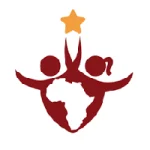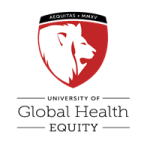Website: https://www.ilo.org
Terms of Reference – National Consultant
Assessment of business development services and training market in Rwanda, including a focus on the digital economy
1. Background
1.1 Context
The digital economy in Rwanda presents opportunities for entrepreneurship, job creation and economic growth. The country is a leader among East African countries in terms of readiness to leverage ICTs to boost growth and competitiveness. As Rwanda continues to position itself as a regional leader in digital innovation and entrepreneurship, it becomes imperative to bolster the support structures that nurture the aspirations and transformative power of its youth, who face significant challenges in the labor market.
Rwanda is characterized by high youth unemployment and underemployment, with noticeable gender disparities. In 2023, estimates from the National Institute of Statistics of Rwanda (NISR) show that the youth unemployment rate was recorded at 20.8%, considerably higher than the 14.8% observed among older adults., Similarly, 57.2% of youth are underemployed, a relatively higher rate than other age population groups, with young women most likely to be underemployed. Gender gaps are severe, particularly in underemployment, where women experience a substantially higher rate at 60.9%, compared to 47.7% for men.
In this context, the project “Boosting Decent Jobs and Enhancing Skills for Youth in Rwanda’s Digital Economy” aims to enable more young women and men in Rwanda to access decent jobs in Rwanda’s digital economy. As part of this objective, the project will strengthen the capacities of business development service providers in the country to sustainably implement the ILO’s Start and Improve Your Business (SIYB) entrepreneurship training program, including the Generate Your Business (GYB), Start Your Business (SYB), Improve Your Business (IYB) and Digitalise Your Business (DYB) packages.
To roll out the SIYB programme for youth entrepreneurs in the digital economy, ILO is looking to partner with selected private or public organizations in Rwanda in order to build their capacity to offer SIYB training, including DYB, sustainably. For that, the ILO seeks the services of an experienced national consultant to assess the business development services (BDS) and entrepreneurship training market in Rwanda, as well as the characteristics of the digital economy in the country. The assessment is done to get an overview of the different public and private organizations and institutions that ILO could partner with to roll out the SIYB programme, especially for youth with aspirations in digital entrepreneurship, understand the need and demand for business management training amongst youth in Rwanda, identify opportunities in the digital economy and get an overview of the digital resources, platforms and tools relevant for micro, small and medium-sized enterprises (MSMEs) in Rwanda.
1.2 The SIYB programme
To build the capacities of potential and existing entrepreneurs and create more job for youth in Rwanda, the project will boost the ability of local organizations to deliver business management training using the SIYB methodology, including DYB. The SIYB programme focuses on starting and improving digital businesses as a strategy for creating more and better employment for women and men, particularly in emerging economies. The SIYB programme has been implemented in more than 100 countries over the last two decades through a consolidated network of more than 55,000 trainers and 400 master trainers who have trained more than 23 million potential and existing entrepreneurs across the globe. In the framework of the SIYB programme, the DYB package was designed to allow entrepreneurs and MSMEs to assess where they are on the digitalization pathway of their business and to develop an action plan to improve their online presence, sell their products or services through the Internet and adapt their operations (from collecting online payments to assuring trust) to the digital needs.
The project seeks to contextualize and adapt the GYB, SYB, IYB and DYB packages in Rwanda, and then
SYB Modules
The SIYB programme consists of a set of four inter-related management training packages aimed at entrepreneurs at different levels of business maturity:
- The Generate Your Business Idea (GYB) package helps potential entrepreneurs to assess their entrepreneurial characteristics and to come up with a concrete and viable business idea.
- The Start Your Business (SYB) package takes starting entrepreneurs through the process of developing a business plan and evaluating its viability.
- The Improve Your Business (IYB) package consists of a set of six independent modules (marketing, costing, buying and stock control, record keeping, planning for your business, and people and productivity) to help already existing entrepreneurs to improve various aspects of their business.
- The Digitalise Your Business (DYB) is intended to be used in combination with the IYB and provides practical guidance on the digitalisation of business processes and operations, including the use of e-commerce to sell products and/or services online.
- The Expand Your Business (EYB) package is for growth-oriented entrepreneurs and helps them to come up with a strategy to expand their business.
transfer the methodology to selected partners with the incentives and capacities to incorporate SIYB into their regular offer. To ensure the financial, technical and institutional sustainability of SIYB-DYB in Rwanda, the training programme will be implemented through local private and public stakeholders that will be equipped with the capacity to scale SIYB-DYB training delivery in the future.
The adaptation of materials and selection of partner organizations will be informed by the results of a rapid market assessment, which provides updated information on the context, needs and capacities of entrepreneurs and enterprises, existing opportunities and actors providing digital and business development support services, and an overview of the digital economy and platforms relevant for MSMEs.
Within this framework, the ILO is planning to contract a national consultant to co-lead the BDS and market assessment and support an international SIYB Master Trainer with the identification of suitable partner organizations and adaptation and contextualization of the SIYB-DYB tools. These terms of reference detail the activities, tasks and objectives related to the delivery of this assignment.
2. Overall objectives
This assignment has the following objectives:
- Under the leadership of the International Consultant, conduct a quick BDS Check to gather information on their current offer, challenges and capacity and incentives to roll-out SIYB and DYB. This will inform the selection of partner organization for the roll-out of the programme in Rwanda.
- Under the leadership of the International Consultant, collect operational data on the business management needs and current digital skills capacities of youth while exploring opportunities to support digital business and/or the digitalization of businesses’ operations in non-digital sectors.
- Under the leadership of the International Consultant, , provide an overview of the main digital tools and platforms available with relevance for MSMEs and any relevant digital/online regulation in the country. This assessment will inform the adaptation of DYB materials.
These three topics will be integrated into the same report, which will help the project in the development of context-specific SIYB-DYB training materials and implementation model.
3. Scope of work
The consultancy encompasses a rapid market assessment to provide key updated information to inform the adaptation and implementation of GYB, SYB, IYB and DYB in Rwanda. This assessment will include:
- The socio-economic profile and information on the digital and business management capacities and needs of young potential and existing entrepreneurs.
- The main digital tools and platforms available with relevance for MSMEs and any relevant digital/online regulation in the country
- Trends of the digital economy in the country and of high-growth and high-potential sectors where wage and self-employment opportunities could be boosted through the digital economy.
- A rapid mapping of BDS providers (public and private), including a check of their current offer, challenges faced, and their potential capacity and incentives to roll out SIYB and DYB.
This rapid assessment will result in a report of max. 20 pages (excluding annexes) delivered by a national consultant.
In addition, the national consultant will support the SIYB Master Trainer with the selection of partner organizations and adaptation and contextualization of the SIYB-DYB modules. As such, the assignment would also include providing inputs and technical advisory to the Master Trainer, when needed, to change the following items in the training materials to fit the context:
Names, Currencies , Amounts, Examples, Online digital tools used in the country, Business jargon (ecommerce platforms, social network platforms, payment methods, marketplaces), Specific digital/online regulations in the country, Specific payments methods (online and offline), and Legal information and business forms of registration
During the advisory phase, the consultant will collect additional information if needed.
4. Key deliverable and timeframe
|
Deliverable |
Timeframe |
|
Deliverable A: Rapid Market assessment and BDS mapping. |
1-30 August |
|
Activity 1: secondary research is conducted |
|
|
Activity 2: Fieldwork instruments and work plan are prepared, and interviews are scheduled |
|
|
Activity 3: Research is conducted, data is systematized, and the report is delivered. Feedback from ILO is addressed. |
|
|
Deliverable B: collaborate with the Master Trainer in the selection of partner organizations and adaptation of materials as needed (estimated to be 10 working days in total) |
01 September – 30 October |
|
Activity 1: recommended partners are indicated |
|
|
Activity 2: a table with necessary adaptations to the manual is provided |
5. Payment Schedule
Payment of Professional Fees will be made in 2 instalments:
- 1st payment of 50% upon submitting Deliverable A, the Rapid Market assessment and BDS mapping final report, including all ILO and Project Partners comments.
- 2nd payment of 50% upon submitting Deliverable B including reflecting all ILO and the Master Trainer comments.
6. Submission
The interested candidate has to submit the following documents:
- A resume reflects that the consultant has advanced university degree in business management or social sciences, at least 3 years of research experience and experience in entrepreneurship promotion in Rwanda. Experience with the digital economy in Rwanda will be a plus.
- A sample of prior consultancy report that should case excellent research and writing skills as well as excellent fluency in English.
- Technical proposal indicating detailed workplan of the delivery of approach;
- The interested individual consultants are requested to provide a financial offer that is deliverable based AND includes ONLY professional fees related to the activity. Number of field mission dates are also to be accounted and reported at the activity level.
Note: The following Table has been prepared to assist the Consultant in reporting their respective financial offers. Some deliverables have been reflected in the table as an example. However, all deliverables are to be reflected in the table.
|
ID |
Activity Deliverables |
Consultancy Fee |
Total Activity Deliverable Days |
Total Number of Mission Days |
Total Deliverable Cost* |
|
IMPORTANT NOTE: First activity below is provided as an example. Please ensure that this template table includes ALL activities detailed in the Key Deliverables section above. Also ensure that the last row is dedicated for Total Activity Days and Costs as shown below in the example. |
|||||
|
A.1. |
Deliverable A: Rapid Market assessment and BDS mapping: Activity 1: secondary research is conducted |
||||
|
Please provide breakdown for each activity in the Key Deliverables section above. |
|||||
|
Totals Activity Days and Costs |
|||||
*Deliverable Activity Cost = Daily Professional Fees X Total Activity Deliverable Days + Travel cost (mission days X DSA) + flight/travel cost
All the above to be submitted to darprocurement@ilo.org no later than 30 June 2024, 4pm Kigali local time. Only shortlisted candidates will be notified.
7. Selection Criteria
The successful candidate will have a mix of expertise and qualifications in the focus areas related to this assignment. Evaluation of the suitability of the Consultant to work on this assignment will be made against the following technical criteria:
|
Evaluation Criteria |
Maximum mark |
|
A. Expertise/Qualification |
|
|
The individual consultant should have at least 3 years of experience as a researcher and her/his resume and sample submitted should reflect evidence of ability to produce high quality reports. |
10 |
|
At least 3 years demonstrated experience in business development/entrepreneurship promotion in Rwanda |
10 |
|
Conducted similar work for ILO or other UN agencies in Rwanda |
5 |
|
Fluency in English is a must. |
5 |
|
Maximum Points |
30 |
|
B. Proposed approach to deliver the ToR’s scope of work |
|
|
Applicant demonstrates (via submitted technical proposal) their expertise working as a researcher and working on the promotion of entrepreneurship in Rwanda. The technical proposal includes a realistic workplan . The evaluation to assess the understanding of scope, objectives and completeness of response. |
40 |
|
Quality of the sample report suggests that the applicant(s) possess the required level of knowledge, analytical skill and ability to write the requested report |
30 |
|
Maximum Points |
70 |
|
Total for Both Section A (30 Points) and Section B (70 Points) |
100 |
|
Minimum Acceptable Score for the Proposal to be reviewed |
60 |
8. Confidentiality Statement
All data and information received from ILO for this assignment are to be treated confidentially and are only to be used in connection with the execution of these Terms of Reference (TORs). The contents of written materials obtained and used in this assignment may not be disclosed to any third parties without the express advance written authorization of the ILO. All intellectual property rights arising from the execution of these TORs are assigned to the International Labour Organization.
The intellectual property rights of the materials modified through the assignment remain with the International Labour Organization.
9. Note to consultant
- All CVs submitted should include the Date of Birth and Nationality of the Consultant;
- Consultant should quote in USD prices and/or using prices calculated using the Official UN Exchange Rates for the country;
- Candidates should be prepared to submit a copy of their national Passport upon Notification of Award;
- Candidates planning field visits, movements, and/or DSA travel dates are required to completed the UN BSAFE security training course upon Notification of Award. Failure to complete the course will prevent the finalization of contracting between the Consultant and the ILO;
- Professional Fees should include all costs associated with the Activity Deliverable;
- Consultants are responsible for arranging their own travel arrangements to project sites;
- Consultants agree to be paid based upon compliance with UN Harmonized DSA rates set for the country;
- Consultants agree that all mission costs will be based upon the most economical direct fares AND that any travel-related costs cannot exceed those payable to an ILO official on the same itinerary;
- All mission cost days will be paid based upon actual receipts paid by the Consultant and actual travel/mission dates;
- Consultants are not to add the VAT to their financial offer unless they are a VAT Registered Individual with Rwanda VAT Authority;
- Consultants should be aware that all intellectual property rights arising from the contract are vested with the ILO however authorship will be acknowledged by the Organization; and
- Consultants will bear all charges levied by their own bank in receiving of managing funds transferred by ILO.





